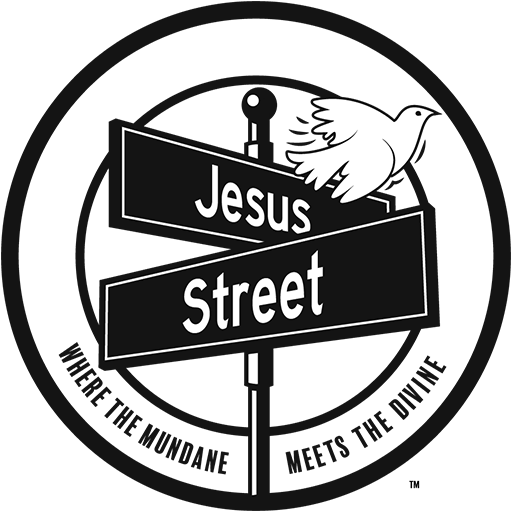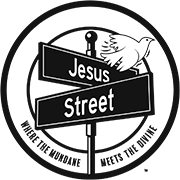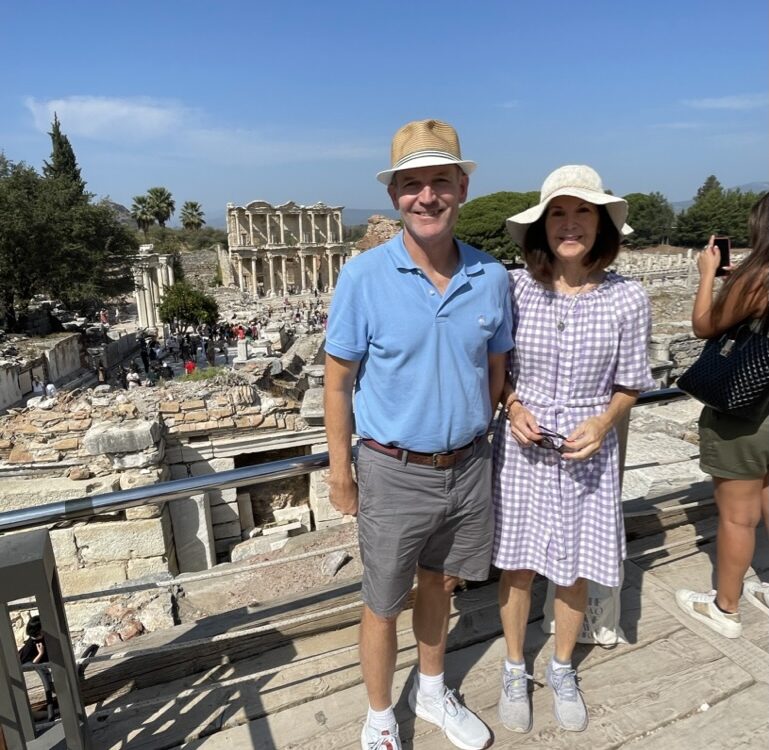The Only Way Out Was the Locked Door — I Felt Doomed
Last night, I had a nightmare.
In the dream, my parents had turned against me and decided to kill me. I was an adult woman, not a child. Now, in the way that dreams can be symbolic, these people were my parents, but they weren’t the same parents that I actually had growing up. I think they represented the concept of relationships that are deeply established.
They took me to a modest and unfamiliar house. The mother-person forced me into a small room, painted white, and locked the door, announcing that she would return in the morning to finish the job of killing me. After being left alone, I began desperately looking around my cell, searching for a way out. The room felt like it had once been a bathroom, but now it was stripped bare. That space on the wall that normally would have been a window was bricked up.
There was no furniture, no food, no water, nothing but an empty room. And the only way out was the locked door. I felt doomed.
After the passage of some time, I made a discovery: the door was actually unlocked. I had been so certain that the door had been bolted shut. Yet no one had touched it since my imprisonment, so that meant the idea that I had been locked into the room had been an assumption all along. Yet the power of the assumption had been as powerful as any lock in keeping me trapped.
What a surprise. So I was free to walk out of the cell? Images filled my mind of carefully opening the door and looking out, only to come face to face with the wicked people who had imprisoned me, waiting with weapons on the other side of the door. Full of dread, I stayed in the cell, unsure what to do. Eventually, enough time passed that I came to an ugly choice: die passively in the cell or die bravely, in trying to escape.
I chose the latter. After gingerly opening the door and coming forth, I realized that the entire house had been abandoned. The pseudo-parents had left me there, counting on my own fear and cowardice to keep me locked in the cell.
It had almost worked.
This dream was not incomprehensible to me. Through my daily practice of meditating on God, in a method known in Catholic Church circles as Centering Prayer, I have been challenged to rethink my basic assumptions and reactions to the world, myself, and others. Spending time in the other Reality that is beyond comprehension, labels, or measure, I have begun viewing myself and cultural expectations in a new light. Old habits, long accepted, now appear as traps. Long-held mindsets and ambitions have been revealed to be obstacles.
The landscape is shifting, and I am trying to adapt, to realize when I am keeping myself locked inside an unlocked room.
For example, I am beginning to understand that, in many cases, we do not have to accept the role of the victim, even when we are cast into it by someone else. Now, I am not talking about victims of a crime or of violence. I am talking about the times that a friend, family member or colleague hurts or offends us, perhaps leaving us feeling that we received harsh treatment which we did not deserve.
Last week, I was on the receiving end of this from a trusted friend. When I made what I thought was a helpful observation, I was told to “stop being so controlling”. There was a hint of rage behind the words, and they stung. In the moment, I did my best to retreat, to avoid escalating the situation, and glided into silence. My friend seemed frazzled and stressed, and my attempt to offer a simple observation had pushed her over the edge. I simply busied myself with something else until I could slip away.
Her forceful and sharp reaction was unexpected; her frustrations did not originate with me. Even though I had demurred immediately, I was left feeling belittled by her scolding tone. As it happened, it was still morning and I was fresh from my daily silent time in which I had practiced Centering Prayer. Before this tense encounter, I had felt surrounded by the light of the divine presence. The stinging verbiage threatened to crack this glass wall of peace, and yet, by God’s grace, I grasped the new concept that I did not have to wallow in the pain.
As later I explained in my journal:
“I found myself able to see that I did not have to smart from the blow or waste precious time feeling hurt, like a victim, feeling angry. I understood that I could choose whether or not to enter the prison cell of anger and resentment. Even though I had been silent in the moment, I could still enter the prison cell afterwards by occupying my mind with damaging thoughts about my friend and her behavior and about the injustice of how I had been treated.
“Or, I could stay freely in the place of spaciousness with the presence of Christ, stay where the Love is, by controlling my thoughts. By God’s grace, I was able to steer my thoughts away from this confrontation and focus on the incredible and available love of God that supported and surrounded me.”
It helped that, soon after the unhappy incident, I was alone, driving to yoga class in my car, so I was able to listen to a soothing “nature sounds” playlist of birds, rain drops, gentle winds, which helped lift me away from the negative feelings. I kept turning my inner attention back to being grateful for Christ and his all-encompassing love. Finally, I was able to pray lovingly for my friend to find release from her agitation and inner turmoil.
Admittedly, this is virgin territory for me. When I feel unjustly blamed or attacked, my natural tendency is to spend time replaying the scene in my head, reliving the pain, trying to understand the sequence that led to this emotional bee sting. Often this mental instant replay doesn’t help, it only rubs the wound raw. My rehashing is admittedly very subjective, and it only increases my sense that I have a grievance. And if an apology is not forthcoming from the offender before sunset, I will experience the heartburn of resentment.
Who wants any of that? Honestly, not me. But I never realized before that the cell door was unlocked.
Now here was the Lord saying, not so much, let it go, but rather, focus on me instead. I recognized that this was a liminal experience in my mental habits, as fragile and full of the possibility of new life as the tiny green sprouts coming up in my kitchen from the butternut squash seeds I had recently planted.
I had watched the black soil in the boxy container for five or six days, waiting for any sign of life. Nothing seemed to be happening. Suddenly, out of the lifeless dirt, six or seven verdant heads poked through the dark surface, asserting their right to life on spindly legs. This vibrant banner of green hope, this promise of growth and renewal and vitality through God, had filled me with riotous joy.
My new perception of my ability to choose freedom felt like those seedlings. I did not have to wallow in the dark dirt; I could turn my attention toward the sun and stretch in that direction. As it happened, a few days later God prompted another friend to direct me toward a rather obscure book, written in the Middle Ages, called The Cloud of Unknowing. This “cloud” is a treatise on Centering Prayer, and as I read about it on Wickipedia, I found this quote from the 7th chapter:
“If you want to gather all your desire into one simple word that the mind can easily retain, choose a short word rather than a long one. A one-syllable word such as “God” or “love” is best. But choose one that is meaningful to you. Then fix it in your mind so that it will remain there come what may. This word will be your defense in conflict and in peace. Use it to beat upon the cloud of darkness above you and to subdue all distractions, consigning them to the cloud of forgetting beneath you.”
As I read this, the word love leapt out and attached itself to my mind. This is where the Lord had been leading me. As The Cloud suggests, this one word, your ideal, love, will be your defense in conflict or peace. Naturally, none of this is possible without having poured out yourself to the Lord in devoted silence, without having relinquished the agonies and demands and desires of the self-centric ego into his hands, trusting in his higher and better ways. In him, we have more power to choose freedom than we realize. As a species, we have sold ourselves short.
When we turn our minds and hearts toward God, he will give us whatever we need to draw closer and come farther in. The way is not easy, and I am as tender and frail as those butternut squash sprouts. But the promise is there, and the potential, and that fills me with the courage to push on into new growth.
The mind is a wonderful servant but a terrible master.
Robin S. Sharma
“A new command I give you: Love one another. As I have loved you, so you must love one another.”
John 13:34 (NIV)







1 Comment
“..rooted and grounded in LOVE”!!
Like your butternut squash you are!
Praying that “you will have the POWER to grasp how wide and long and high and deep is the love of Christ for you! This love that surpasses all knowledge. So that you may be filled to the measure of all the fullness of God!” (Ephesians 3:17-19)
And also, that next time a trusted friend stings you with hurtful words…
You will “be strengthened in POWER through His Spirit in your inmost being..so that the LOVE of Christ for you will dwell in your heart”…more than the hurt from a trusting friend. (Eph 3:16,17)
(I felt the sting with you…as that has also happened to me…and hurt so much because I love deeply, as I think you do.)
Your words are so beautiful.
Truly…from the pen of a skillful writer.
(I love to pick up my pen, too!)
I feel so connected to you.
And I look so forward to continuing to read your heartfelt words.